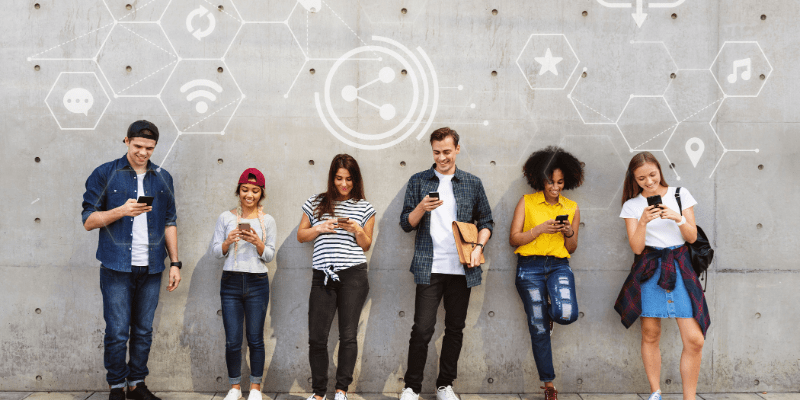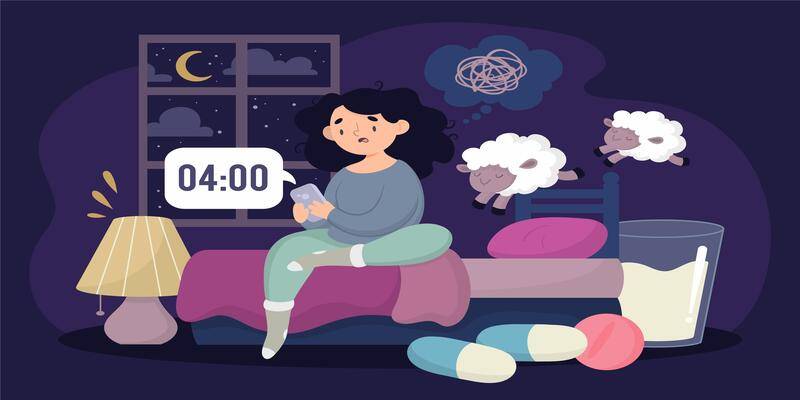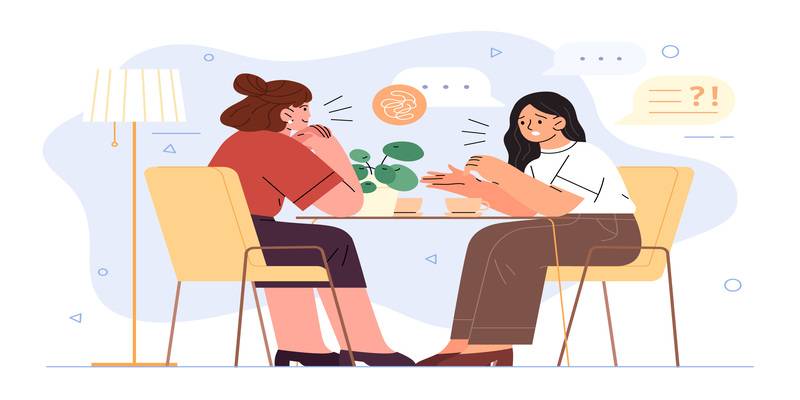Social media through the lens of mental health

‘Social Media’ and ‘Mental Health’, perhaps the four most discussed and read words on social media platforms and newspapers today. But how exactly are they interconnected in this fast-paced world of technology, and how is one affecting the other, is what we need to ponder upon. Humans are creatures of habitual living, they look for warmth, love, contact, and a sense of security in the society. For this very feeling of security, humans gave up their primordial behaviour of living under the laws of nature and accepted society’s social contract. With changing times, human connections evolved as well.
In the pandemic era, the world saw a shift in how humans communicate. From meeting friends over a cup of coffee in some cafe to just catching up on instant messaging applications. The technology revolutionaries and wizards call it the advancement of the world as we know – a step towards the future, a step closer to the world we are all familiar with through various science fiction movies. But what is the ultimate price of this?
Apart from the environment taking the brunt of our unchecked, unfathomed aspirations, are we now paying our due by sabotaging our mental health as well? Can technology effectively replace or replicate the human warmth and connection, or is it just what the big corporations will have you believe so that we can fall prey to their marketing strategy?
Social media has complicated the already complex human relationships. With increased accessibility to their life, humans have begun to equate it with increased access to their time as well. The concept of personal space and time has ceased to exist. The need for personal time has been refashioned into the concept of “being off the grid”.
Round-the-clock access to the lives of our friends and acquaintances has generated a sense of entitlement amongst us for their time and details about their lives. The idea of privacy is now a lost cause. With the details of our lives being put out over the internet, every day, in some form or the other, we all become a part of the “world of Big Brother”. Our actions are watched, we are being judged by family members, friends and people of our social circle. Not being on Instagram or Tik-Tok is the new age version of not being “cool enough”.
Exclusion of people who don’t have access to quality smartphones or clothes or suffer from a digital divide due to financial constraints is the new norm. A new rich majoritarian world has been created inside the digital world where “influencers” are controlling the reins. The concept of number of likes over posts has become the 21st-century popularity quantitative measure. Teenagers, who are at the most gullible age of their lives, have only witnessed a world where their worth is measured by their social media popularity. The idea of acceptance has shifted towards the idea of exclusion.
The sense of self-worth is now projected onto the number of followers one has on their social media handles instead of being inward. This inauthentic virtual world has affected the mental well-being of many. Being depressed over lack of popularity or jealous over the disparity in lifestyle has generated an era of hatred and trolling. Social media has set an unhealthy and unrealistic ideal of life. Those who cannot achieve it resort to dealing with it by spreading hate online under the garb of anonymity, caring little about how their words might be affecting someone else.
As mental health is still a hush-hush topic in many countries, people are denied proper access to the help they need, and its aftereffects are witnessed even in the digital world. But the discussion over whether the harm to mental health is just a by-product of complete domination of social media over our lives is yet to be done openly. Humans have been reduced to data for targeted marketed research, and the outrage over it is next to none. This brainwashed ideological indoctrination needs to be discussed more.
Technology has certainly played a big role in keeping the societal structure and work culture alive during the tough times of the COVID-19 pandemic. Conference rooms were replaced by video calls via apps, and the comfort of attending office work from the convenience of home thrilled many. This was a realisation of the dream of introverts and of those who wish to work from the comfort of their own bed and sofa and not spend hours fighting traffic.
Today, the “work from home” culture has become such an indispensable part of our functioning and has eased its way during the pandemic that many believe that it is here to stay and will be the new normal. Even some surveys have suggested that people are unwilling to go to the pre-pandemic ways of things. But how does this isolation affect our mental health? Doesn’t the physical office space provide some warm human contact? Can isolation not affect our mental health too?
Social media might have reduced the geographical barriers digitally, but the harmful effects of excessive use of applications and our phones are finally catching up to us. The current need of the hour is that we need to learn how to compartmentalise the digital world from the real world. Taking a break from your phone to have an actual human conversation with people seems like a good start. Now that we are in the post-pandemic stage, the world is slowly going back to the street with new guidelines in place; perhaps one of those could be to try and be “off the grid” a little more.
Article by: Aishwarya Rohilla






